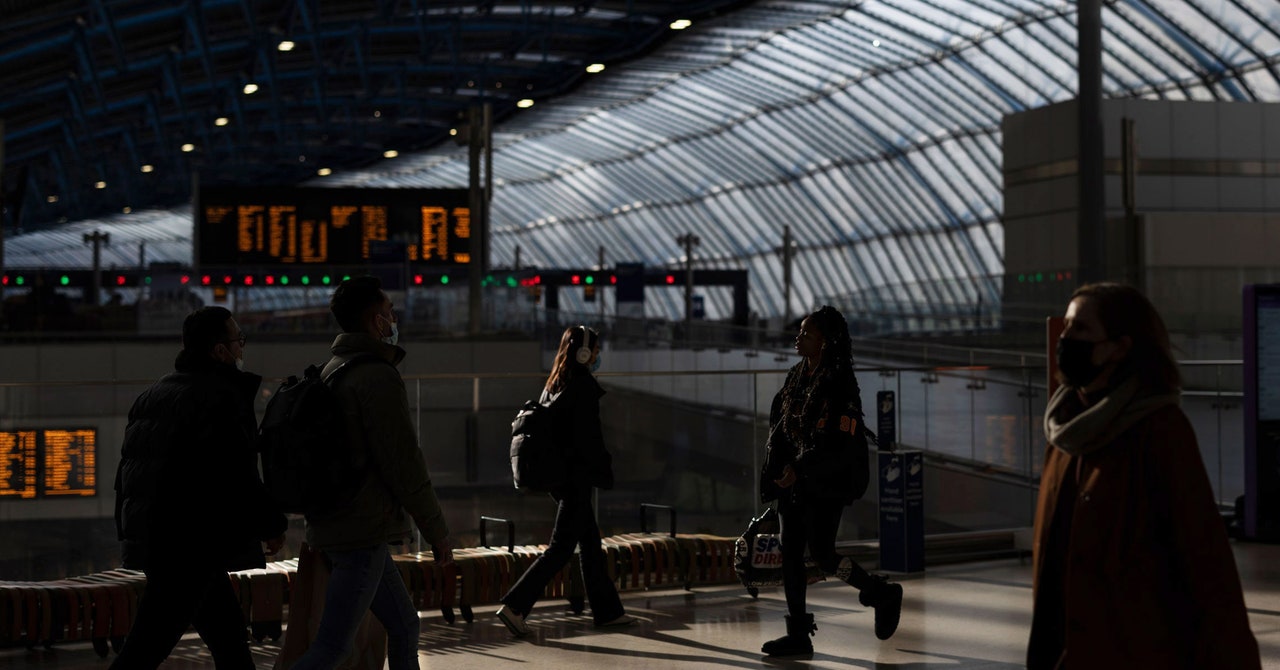
Since January 27, England has dropped pretty much all its measures against Covid-19. Any person can saunter into any shop without a mask; work-from-home guidance has been scrapped; and all needs for a vaccine passport have been squashed. England will be the “most open country in Europe,” proclaimed health and social care secretary Sajid Javid.
And other European countries are following suit. Ireland has dropped almost all its restrictions, bar mask requirements. Denmark is also eliminating all measures beginning February 1, except for testing on arrival from abroad. Other Nordic countries have signaled they will also do the same in the coming weeks. The Spanish government is urging European countries to consider the possibility that Covid-19 can now be treated as an endemic disease—a permanent fixture in our lives.
Despite towering case numbers for Omicron, these parts of the world are beginning to declare—arguably prematurely—that the worst of the pandemic is behind them. It’s time to get on with it, to learn to live with Covid, they say. The World Health Organization has warned that new variants are likely to emerge and that the pandemic is nowhere near over. But a wise decision or not, it’s happening.
Now what? Stuck at home for the past two years, our social skills have decayed, we’ve outgrown our jeans, and we’ve developed an unrelenting suspicion for every cough and sneeze. But now, suddenly, we’ve been set free, urged to dive back into a Wild West revision of the new normal. How will we cope? And what wounds will we be carrying?
George Bonanno, a clinical psychologist at Columbia University, reckons most people will welcome the return to normal (or some semblance of the previous normality). “I think people are really ready to move out from under the shadow of this thing,” he says. In his book, The End of Trauma, he makes the case that humans are more resilient than we give ourselves credit for. While some have dubbed the pandemic a “collective mass trauma event,” Bonanno chafes at this term. A traumatic event is defined as one that is unexpected and violent or life-threatening. “When people start talking about collective trauma, they get into the illusion of some sort of medical diagnostic thing, and that’s just wrong.” The abundant overuse of the word “trauma” in casual references means the word is losing some of its clinical weight, not least in the case of the pandemic, he thinks.
But for some, it has certainly been traumatic. Health care workers, who have borne the brunt of caring for patients and seeing them suffer and die, and have worked unrelentingly long hours in difficult conditions for the past two years, are reporting record levels of post-traumatic stress disorder, a mental health condition triggered by a traumatic experience, with symptoms including flashbacks, difficulty sleeping, anxiety, and nightmares. According to modeling from the Royal College of Psychiatrists in the United Kingdom, 40 percent of intensive care staff have symptoms of PTSD, as well as 35 percent of Covid patients who have been ventilated.
To gauge the coming mental fallout from the pandemic, other epidemics may serve as models. One study conducted in Hong Kong looked at chronic PTSD rates among survivors of SARS, two and a half years after the 2003 epidemic. Almost half had PTSD at some point after the outbreak, and over a quarter were still suffering with it after 30 months. Another study found that PTSD was the most common long-term psychiatric condition among survivors.


